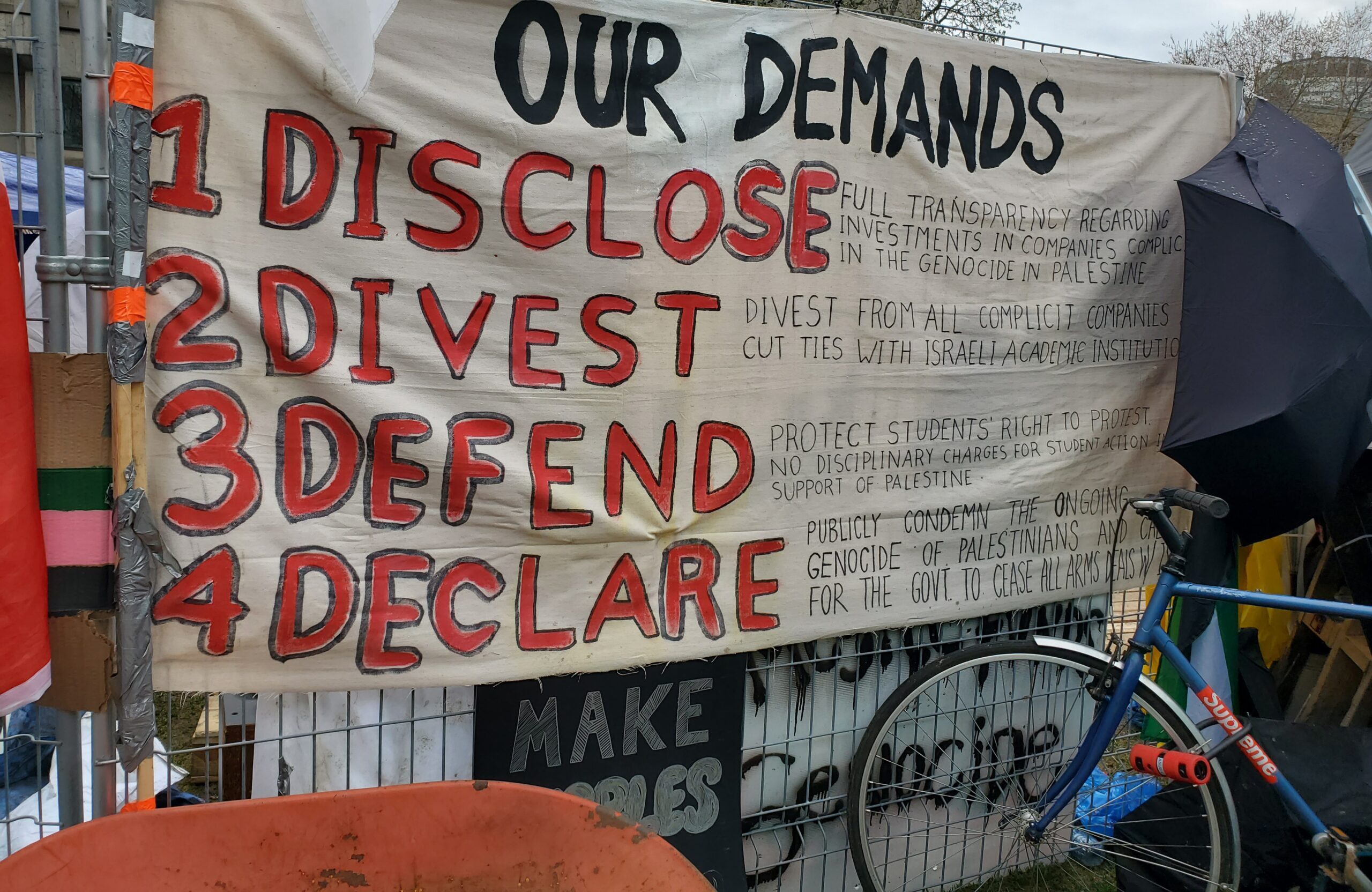Since April, student encampments have sprung up on campuses across North America and beyond in protest against Israel's genocide in Palestine. Despite opposition from administrations and politicians, students are demanding that universities divest from and cut ties with Israeli institutions. The North Star went to see activists in camps across the country to better understand the situation.
The Canadian movement, which began at McGill University in Montreal, has spread to many other campuses around the country. As of June 9, various encampments have been forcibly or voluntarily dismantled, including at the Université du Québec à Montréal, the University of Calgary, McMaster University, Laval University, and Ontario Tech.
Meanwhile, negotiations between student protesters and the administration at universities including McGill, the University of British Columbia (UBC), the University of Toronto, the University of Sherbrooke, the University of Guelph, Memorial University and the University of Victoria are at a standstill as the threat of police intervention to dismantle the camp looms in the background.
While the encampments have not been exempt from controversy, that controversy is sometimes overestimated by the mainstream media. According to a Léger poll conducted in early May, 48% of the Canadian population was against the encampments, 31% were in favour of them, and 21% were undecided. Forty-five percent of 18-to-34-year-olds were in favour, marking a significant generational difference. An Angus Reid poll of June 3 seems to confirm these results.
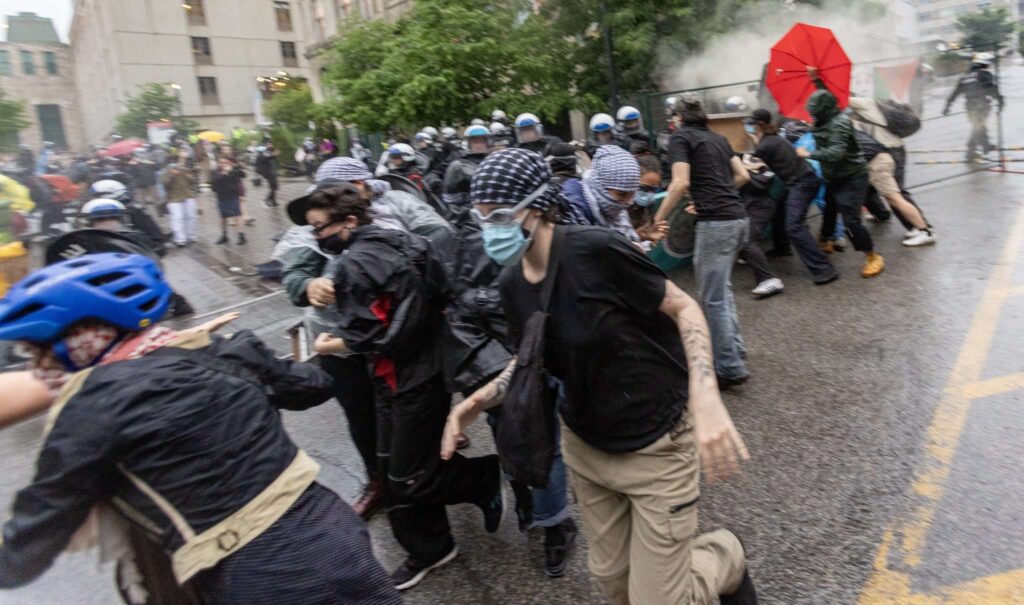
Peter Graefe, Associate Professor of political science at McMaster University, thinks that "there's a fair bit of sympathy for the need to be more forceful in criticizing the bombardment of Gaza," but he doesn't believe there is a consensus in the university on encampments.
However, the mainstream media does not always make it clear why these camps have been set up, as they tend to focus on sensationalized confrontations rather than demands. In an interview with North Star, Morgan*, a student representative at the UofT explained their reason for being there:
"Anyone whose heart is in Gaza, who attends this institution and pays tuition, cannot stand by while our institution is investing in companies that are perpetuating the horror that we see every day when we wake up. It makes us feel like we are paying for it, so we are going to do everything we can to stop paying for it."
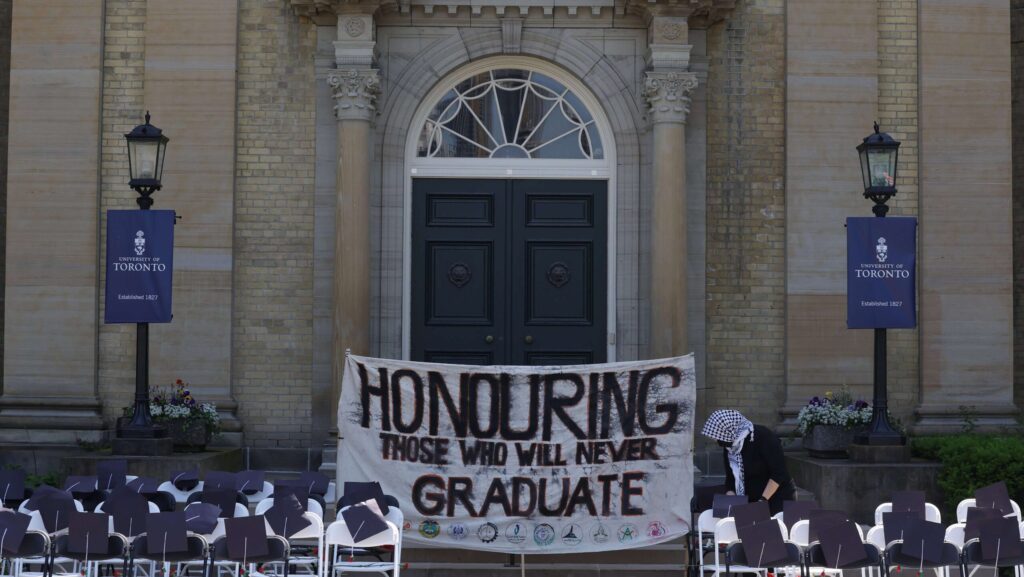
University of Toronto
According to Alex*, an organizer of the McGill encampment, McGill's administration "invests over $20 million in companies that manufacture weapons, companies like Lockheed Martin, Safran, Thales. So, we are demanding that they divest from these companies."
The University of Guelph's investment in arms, defence and military companies has increased notably in the last few years ait refocused investments following a successful 2019 campaign for divestment from fossil fuels. From 2019 to 2024, the number of defence contractors included in their holdings increased from nine to 21, while the number of complicit companies increased by 290%.
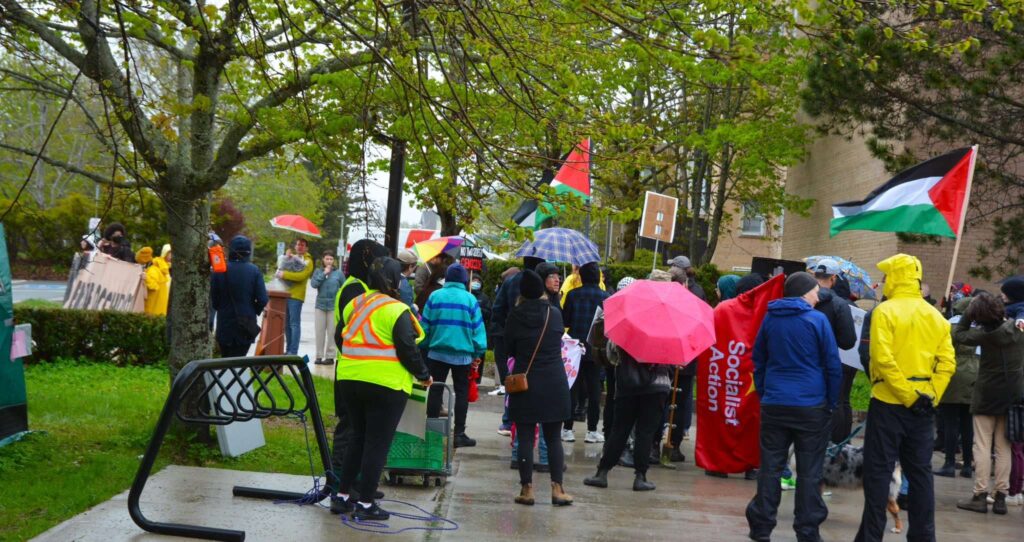
At Dalhousie University, Sam* told The North Star that their administration also had major investments in companies profiting from the war against Gaza. "To name a few, we have the Israel Chemical Limited," a company mining in occupied Palestinian territory "in which Dalhousie invested $706,000 last year."
"Next, we have Leonardo DRS, Inc., in which Dalhousie invested $140,000 last year. This is a weapons company with hefty contracts, one of which is a contract to Israel to supply them with tactical radar systems."
"Last on this list, we have Mercury Systems Incorporated, in which Dalhousie invested $30,000 last year. This group is a microchip and computer systems company partnering with RTX, which supplied Israel with its Iron Dome Defense system, as well as missiles and tracking technology. And those are just the major ones." In general, this type of investment seems to be common at Canadian universities.
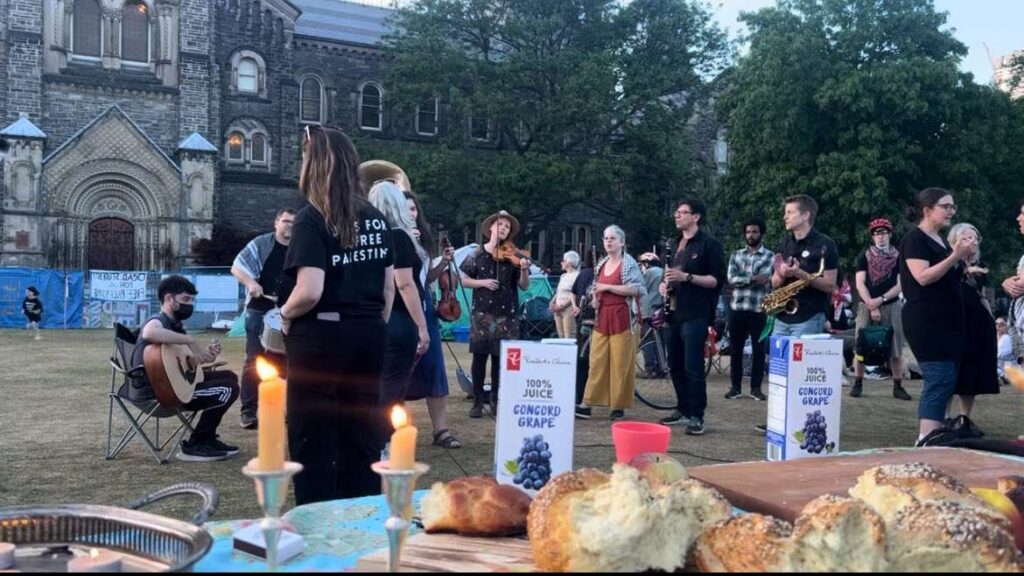
Morgan stated that the University of Toronto's administration was rejecting the encampment's demands because "stakeholders" wouldn't want their shares to be disclosed. "Our response to that is that the students are stakeholders. The university does not belong to partners and investors."
Alex explains that McGill administration "reached out to student representatives to discuss our demands. They have stalled and they have failed to come back with any concrete proposal."
Instead, Alex said, "they sought legal action against the encampment and they have threatened police intervention. They have tried to get the police to remove this encampment, but they have also failed." Another organizer added that it is "quite telling in terms of what they're willing to do."
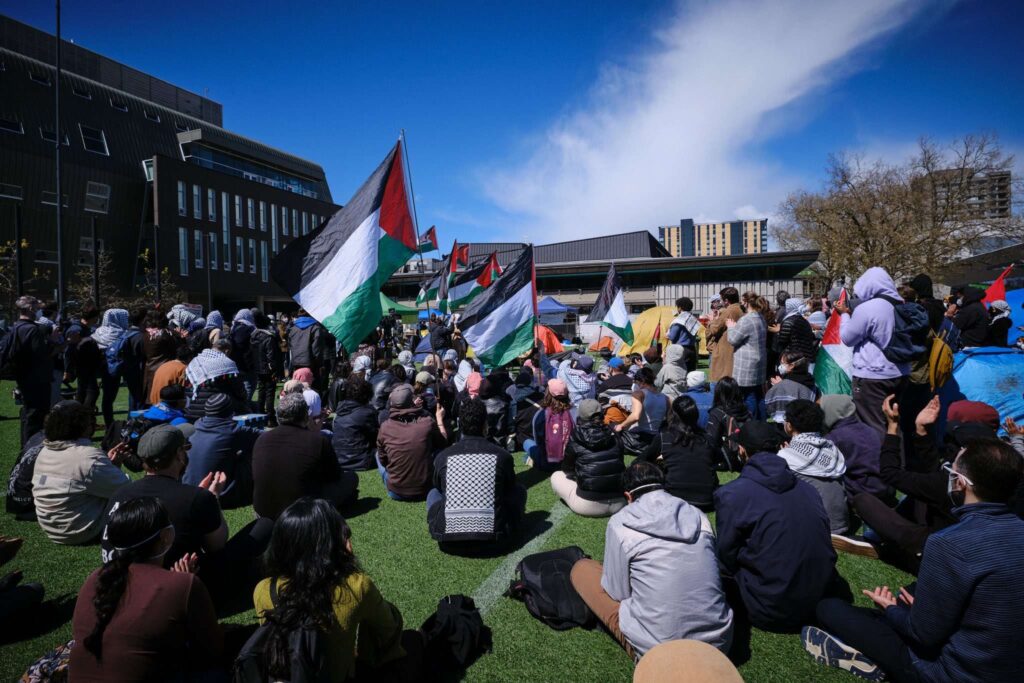
A demonstration was recently repressed at UBC, leading to an arrest, but the camp is still standing. The camp's media liaison, Charlie*, told North Star that the difference in repression with other universities, such as Calgary, is due to the specific policies of the administrations.
They added: "I know that McGill has a long history of brutalizing their student protests and their student discourses, versus at UBC, it's not so much."
At Dalhousie University, Sam believes that they are "working towards equity on a social level. This is a unified and universal problem. We're just focusing on Palestine, but it's encompassed within everything," like the workers' struggle.
*The spokespeople at the camps asked that their names not be disclosed. To improve readability, pseudonyms have been used.
- Trudeau calls for a “humanitarian pause” in Gaza
- Teacher denounces TDSB’s silencing of support for First Nation and Palestine
- B.C. civil liberties group denounces state attack on free speech
- Government of Canada Labels Palestine Solidarity Organization As a Terrorist Entity
- Authors Demand Giller Prize Sever Partnership With Scotiabank
- Understanding the root causes of recent violence
- New groups are changing the face of the Palestinian movement
- Scotia Bank benefits from weapons “battle-tested on Palestinians, Lebanese and Syrians”
- How did adopting a controversial definition of antisemitism become a priority?
- Inside the Student Encampments Challenging University Investments in Israel
- “Palestine is in our hearts”
- Canada-wide solidarity with civilians affected by the conflict
- Workers Refuse to Handle Weapons for Israel
- High School Students Walking Out for Palestine All Across Ontario
- The Critical Role of Prisoners
- A conditional freedom of expression?
- Canadian pension funds exploited to finance violence in Palestine
- ICJ Rules on Gaza Genocide, But Can It Make a Difference?
- B.C. fails to protect free speech, minister’s resignation demanded


